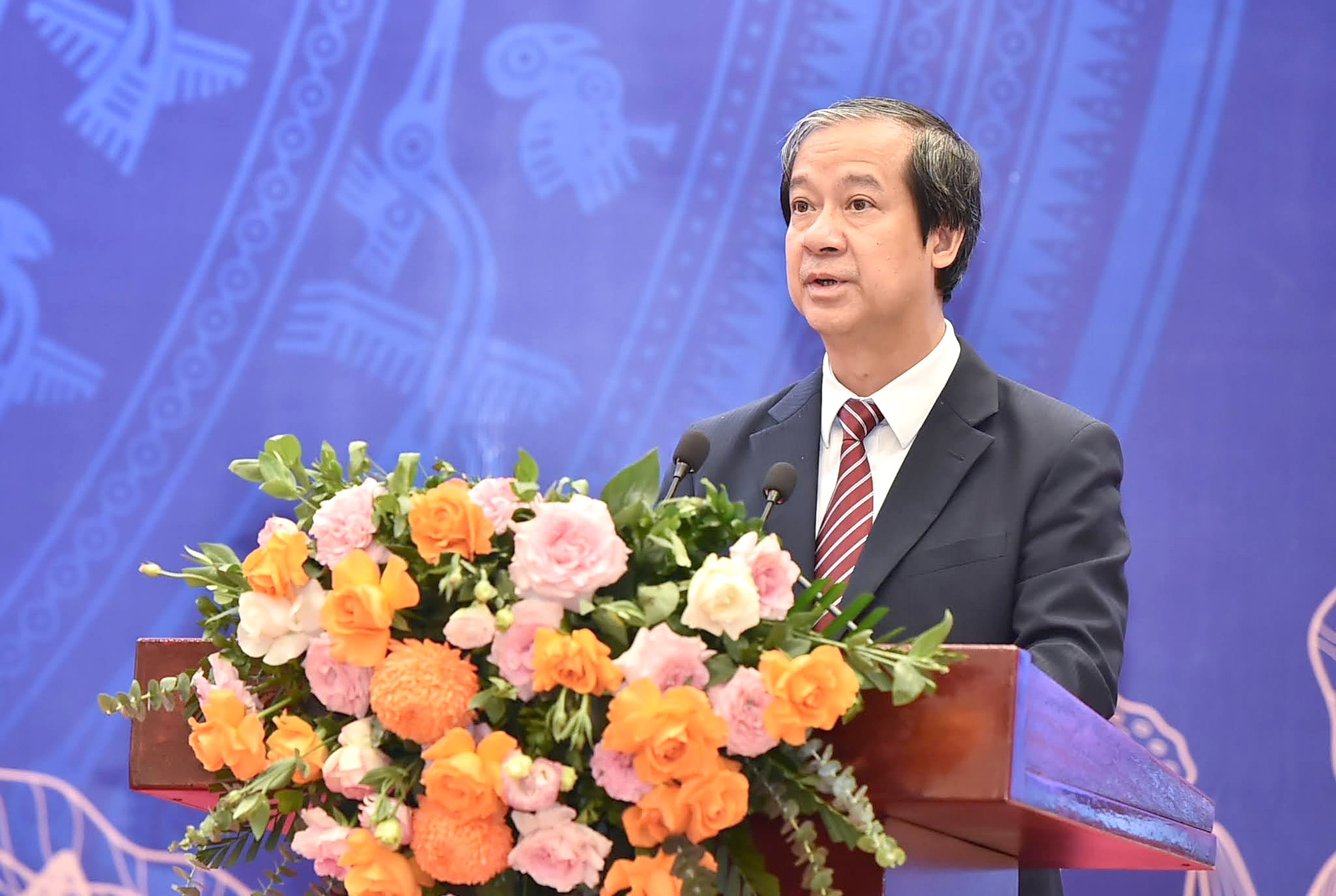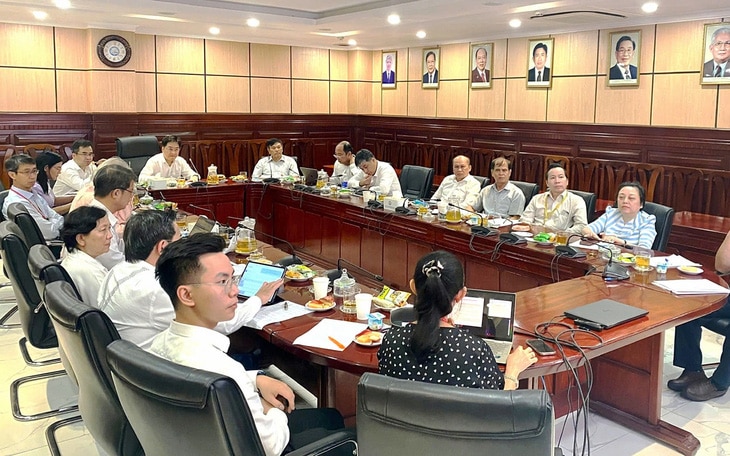
Minister of Education and Training Nguyen Kim Son speaks at the conference – Photo: MOET
Minister Nguyen Kim Son mentioned the tradition of valuing education, loving learning, and cultural traditions. According to him, these traditional values are real and very proud, reflected in many factors, such as the number of people going to school, the spirit of learning, respecting teachers, etc.
But a country that values education and loves learning also needs to have spacious schools with the minimum necessary for teachers to work and students to study.
Currently, the average solidification rate nationwide is 86%, with preschool and primary schools reaching 83%.
This rate is very high compared to 10 years ago, but the number of unconsolidated classrooms is mainly concentrated in mountainous provinces, ethnic minority areas and disadvantaged areas (such as the Northwest, Central Highlands, Central region and Southwest), the rate of unconsolidated preschool and primary school classrooms in many provinces is still over 40% (Dak Nong, Kon Tum, Dien Bien, Cao Bang, Lai Chau...).
It is noteworthy that these temporary schools are most numerous at the preschool and primary levels.
“The youngest children of school age need to be given special care and need to study in solid schools with minimal facilities. The goal of school to school and class to class needs to be implemented more vigorously,” said Minister Son.
The Minister emphasized that schools are community institutions, belonging to the community, in the community. Our Party and State consider education and training as the top national policy, always showing concern and determination to develop education and training through many major policies and guidelines.
Last August, the Politburo issued conclusion 91-KL/TW to continue implementing resolution 29-NQ/TW, which clearly stated that "by 2030, the rate of solidified classrooms will reach 100%", meaning that by 2030, the whole country will no longer have temporary classrooms or non-solidified classrooms.
According to the minister, to achieve this major goal, comprehensive solutions are needed, in which the State still plays a leading role and mobilizing social resources is extremely important.
 School boards are not just 'nodding' or 'shaking their heads'
School boards are not just 'nodding' or 'shaking their heads'





































![[Photo] Prime Minister Pham Minh Chinh chairs Government Conference with localities on economic growth](https://vstatic.vietnam.vn/vietnam/resource/IMAGE/2025/2/21/f34583484f2643a2a2b72168a0d64baa)




















































Comment (0)